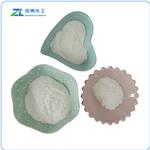
Polydioxanone
- Product NamePolydioxanone
- CAS31621-87-1
- CBNumberCB01316300
- MFC4H6O3X2
- MW102.088
- MDL NumberMFCD00868119
- MOL File31621-87-1.mol
- MSDS FileSDS
Polydioxanone Chemical Properties,Usage,Production
Description
Polydioxanone, also known as poly-p-dioxanone, is a colorless, crystalline, biodegradable synthetic polymer. Polydioxanone is used in numerous medical applications, e.g., biodegradable sutures and implants, for its excellent biocompatibility and appropriate degradation time[1]. As a biodegradable suturesa, it has greater initial tensile strength than polyglycolic acid and polyglactin 910 but has the poorest knot security of the synthetic absorbable suture. The material is suitable and advantageous in cardiovascular operations where autologous tissue is handled. Polydioxanone clips could used in ligation of branches of the autologous vein grafts in femoropopliteal bypass and aortocoronary bypass. The polydioxanone clips did not slip when burst-tested in vitro[2].Uses
Medical deviceDefinition
Polydioxanone is a macromolecule composed of repeating 2-hydroxyethoxyacetyl units, obtained via ring-opening polymerisation of p-dioxanone.brand name
PDS II (Ethicon) .Side effects
Side effects were limited to ecchymosis (the most common), erythema, bleeding, visible threads, swelling, and discomfort.References
[1] Svoboda R, et al. Complex thermokinetic characterization of polydioxanone for medical applications: Conditions for material processing. Polymer, 2023; 227: 12597.[2] Harjola P, et al. Polydioxanone in cardiovascular surgery. The Thoracic and Cardiovascular Surgeon, 1984; 32: 100-101.
Preparation Products And Raw materials
Polydioxanone Suppliers
Global(45)Suppliers
| Supplier | Tel | Country | ProdList | Advantage | ||
|---|---|---|---|---|---|---|
| +8615255079626 | eric@witopchemical.com | China | 23541 | 58 | ||
| +86-16264648883 +86-16264648883 |
niki@zlchemi.com | China | 3718 | 58 | ||
| +86-0371-55170693 +86-19937530512 |
info@tianfuchem.com | China | 21631 | 55 | ||
| 18853181302 | sale@chuangyingchem.com | CHINA | 5906 | 58 | ||
| 00852-68527855 | info@itopbiochem.com | China Hong Kong | 902 | 58 | ||
| +86-0551-65418671 +8618949823763 |
sales@tnjchem.com | China | 34563 | 58 | ||
| +86-18621343501; +undefined18621343501 |
product@acmec-e.com | China | 33338 | 58 | ||
| +8613817748580 | cooperation@kean-chem.com | China | 40066 | 58 | ||
| 18151111370 18151111370 |
1046215251@qq.com | China | 6652 | 58 | ||
| 0711-3812399 18062309155 |
156941107@qq.com | China | 3011 | 58 |
31621-87-1, PolydioxanoneRelated Search
PROMPT×
PROMPT
The What'sApp is temporarily not supported in mainland China
The What'sApp is temporarily not supported in mainland China
Cancel
Determine

